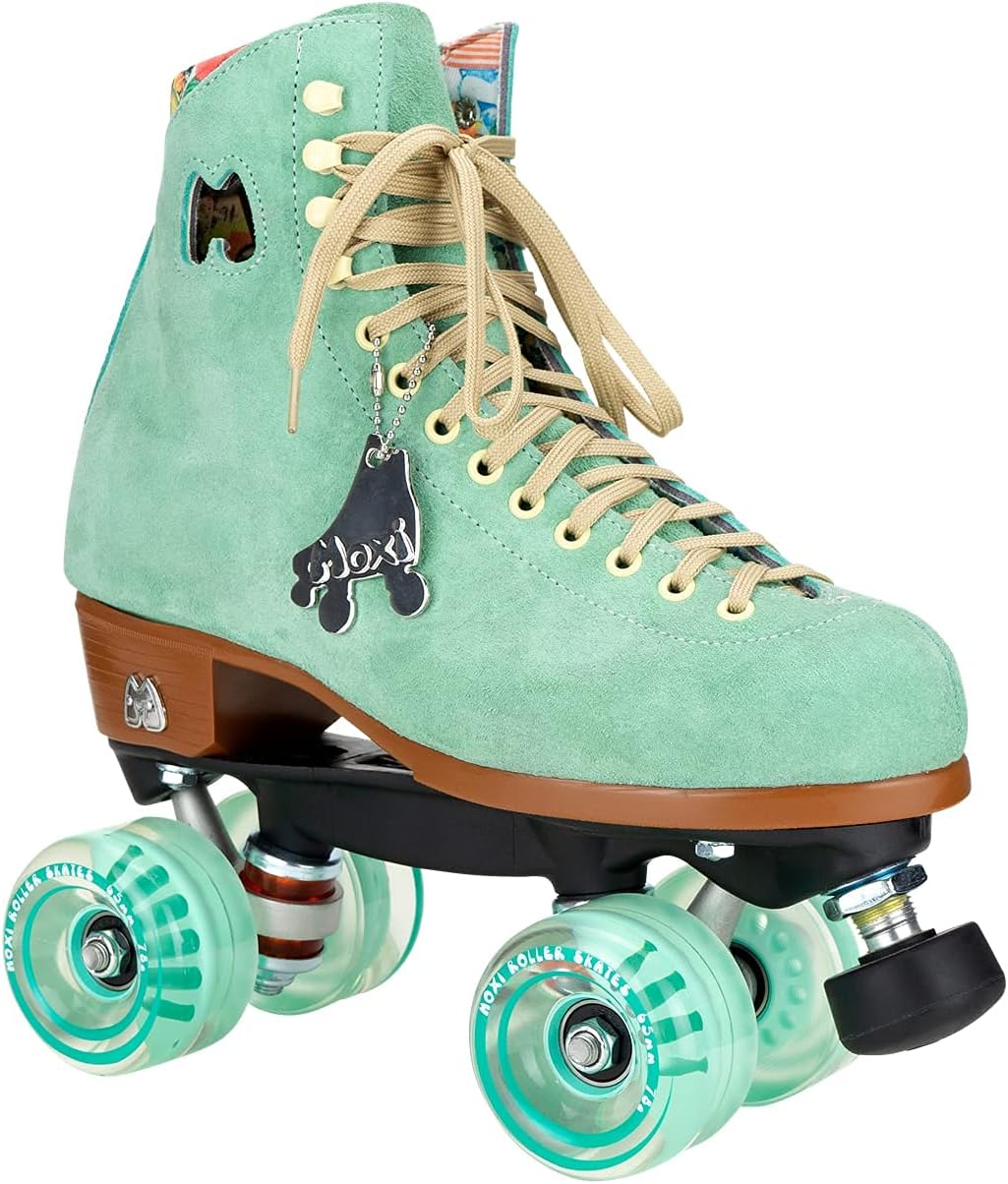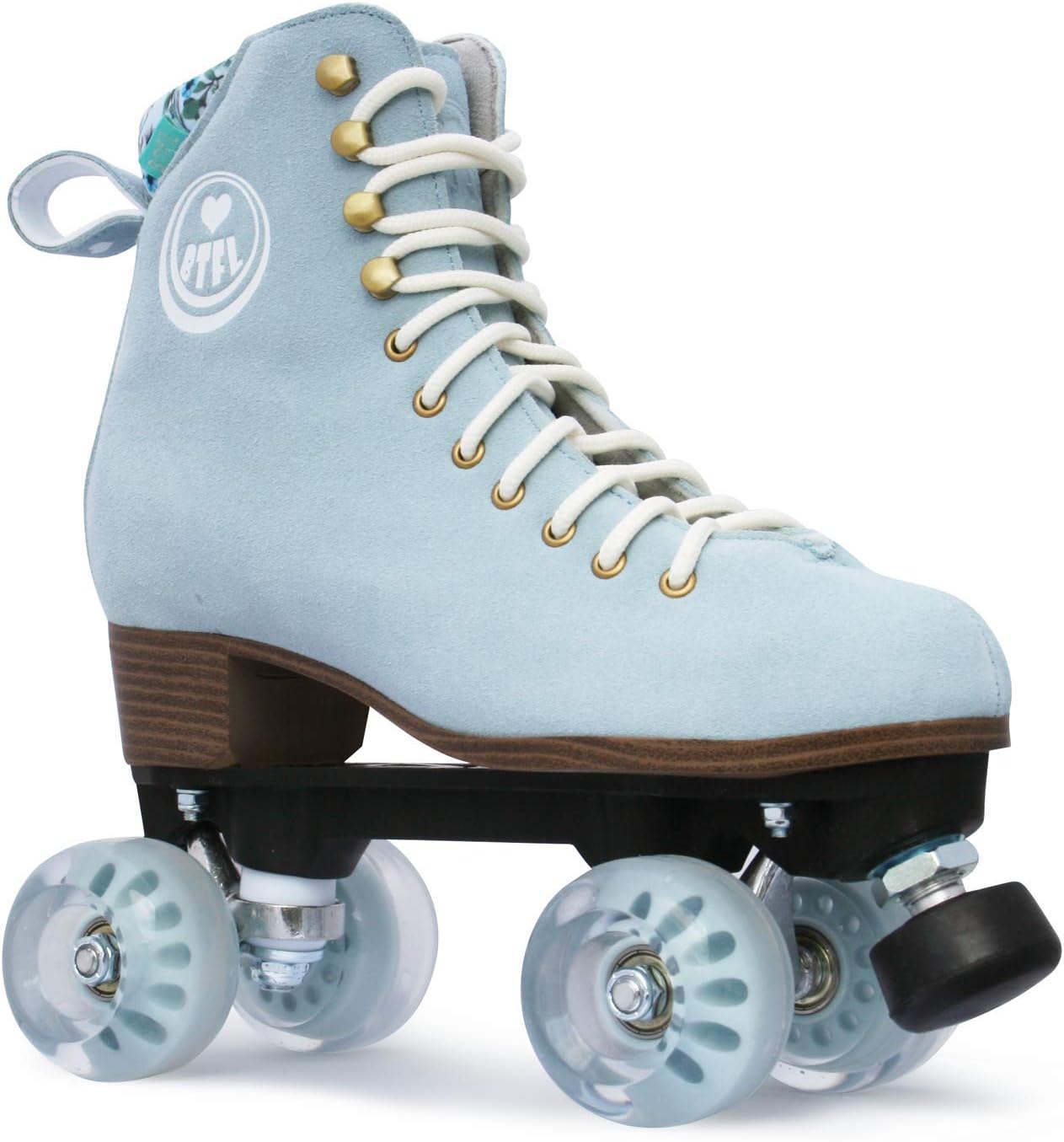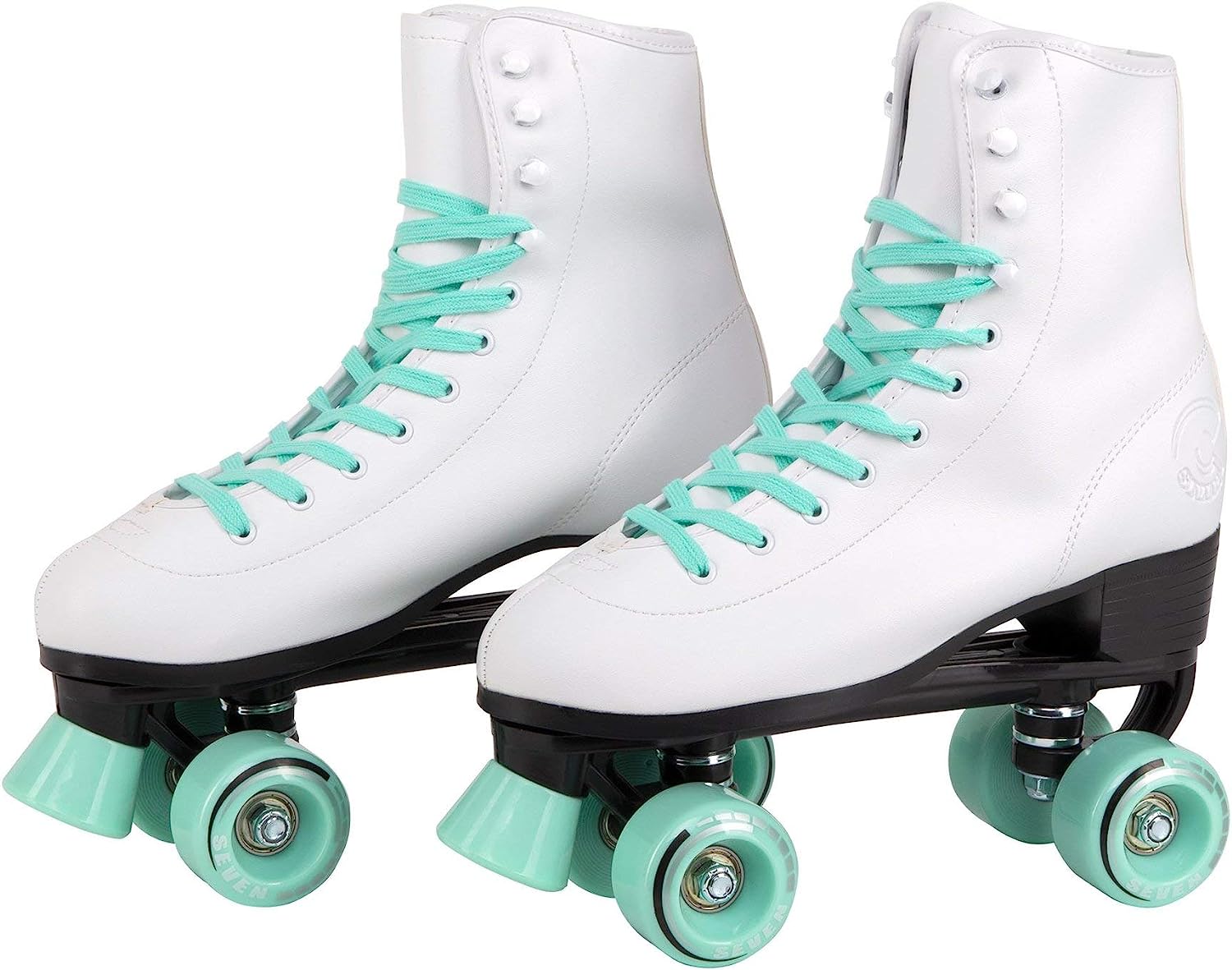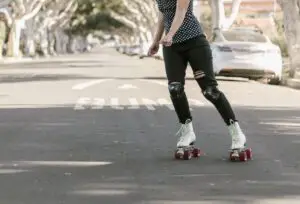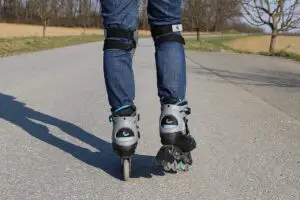Anyone can learn to roller skate on their own if they invest time in practicing. Self-taught roller skating even offers flexibility and is cost-effective as well. However, your learning curve might be longer, and your basics of stopping and speeding could be completely wrong due to limited feedback.
PROS & CONS OF LEARNING ROLLER SKATING ON YOUR OWN
Pros
- Freedom to learn at your own pace
- Flexibility
- Cost Effective
- Personal Growth
- Wide range of Resources Accessible
- No Pressure
Cons
- Lack of Professional Guidance
- Limited feedback
- Shallower learning curve
- Potential Safety risks
- Self-motivation needed
- May take more time to learn rollerblading
WHY TO LEARN ROLLER SKATING ON YOUR OWN?
One of the main draws of self-taught roller skating is the independence it offers. No schedules, no instructors – just you and the pavement. You get to choose when and where to practice, which adds a level of flexibility that traditional lessons may not provide. Plus, let’s not forget the potential cost savings and convenience.
Learning to roller skate on your own can be light on the wallet, as you won’t need to invest in expensive classes or private lessons. All you need are a good pair of roller skates and some protective gear, and you’re ready to hit the streets.
It’s the kind of cost-effective and convenient learning that many of us find appealing. So, if the allure of self-guided exploration and cost-effectiveness resonates with you, self-taught roller skating might be just the adventure you’ve been looking for.
Challenges of Self-Teaching Roller Skating
When I started learning to roller skate on my own, I faced some difficulties too that I think are worth mentioning. Roller skating can be a lot of fun, but it comes with its own set of challenges, especially if you’re teaching yourself.
First off, there are some common challenges you’ll face, like maintaining your balance, controlling your movements, and learning different techniques. These can be a bit tricky, and it’s important to be patient with yourself because almost every roller skater has to overcome these hurdles, even people with a personal coach; they just might learn the technique slightly better because they have a personal trainer.
Another challenge is the lack of structured guidance and feedback. When you’re learning on your own, you don’t have a teacher to point out your mistakes and help you get better. Instead, you have to rely on your own self-awareness and resources like online tutorials or books to improve your skills.
The biggest challenge, I think, is the lack of feedback. You could be roller skating for years, but your posture and how you stop might be completely wrong, and you might not even realize it. I’ve seen many such roller skaters who’ve been roller skating for years and they don’t even know the t-stop.
Lastly, safety is a big concern when you’re teaching yourself. Without an experienced person to guide you, you need to be extra careful to avoid accidents. Knowing how to prevent accidents and what to do if one happens is crucial. So, while self-teaching can be exciting, it’s important to be aware of and ready to tackle these challenges.
How Long Will it Take to Learn Roller Skating?
Everyone has their own pace of learning, and since you’re going to learn this without an instructor, your learning curve is going to be a bit more lengthy. But still, in my opinion, it would take you around a month to become average in roller skating, only if you practice daily for at least 40-60 minutes. Your learning curve would be way longer if you don’t practice daily.
I’ve written an entire article on this topic; you can check it out if you’re really curious to know the expectations you can set for this sport.”
HOW LONG TO LEARN ROLLERBLADING? SETTING REALISTIC EXPECTATIONS
But My Child Can Roller Skate ALready?
When parents say this, it usually means their child can skate forward but struggles to stop properly. Stopping on roller skates requires good balance and proper technique, something new skaters are still learning.
Some people think you can stop by just dragging the toe stops, but that’s wrong.
Even if your child can already skate, a few lessons can really help. They’ll cover the basics, fix any bad habits, and most importantly, teach safe stopping methods like the knee drop, plow stop, and t-stop.
Tips to Get Started
Start with the Right Gear: Before you hit the pavement, make sure to invest in a good pair of rollerblades that fit comfortably else you’ll be constantly getting sore feet and other discomforts while roller skating. Finding the right fit is key to a safe and enjoyable experience.
My top pick for beginners and even people wanting to scale their roller skating journey has always been the BTFL Pro (I use them myself) and if you’re a woman and you can afford then just close your eyes and go for the Moxi Loli skates, they are hands-down the best premium quality skates for indoors as well as outdoor skating and the comfort level of these skates is top-notch, another budget-friendly alternative could be C7 quad skates (not the utmost quality but still one of the Best for that price)
Safety First: Never skate without your protective gear – a helmet, wrist guards, knee pads, and elbow pads. Safety gear is your best friend, especially when you’re just starting out.
Practice Balance: At first, focus on maintaining your balance. Practice standing still and balancing on one leg. It might sound simple, but it’s a fundamental skill that’ll help you feel more confident on wheels.
Learn How to Stop: Stopping can be tricky. Learn different stopping techniques like the “T-stop” and “plow stop.” Practicing these stops in a controlled area will help you feel more secure.
Take It Slow: It’s easy to get excited and want to skate fast, but starting slow and gradually building your speed is a safer approach. Take your time and gain confidence as you go along.
Practice, Practice, Practice: Skating is all about muscle memory. Make a routine and practice regularly. Even a short daily practice session can make a big difference in your progress.
Turn and Maneuver: Learning how to turn and change direction smoothly is essential. Start with gentle turns and practice until you’re comfortable making wider turns.
Stay Relaxed: This one is the most important you won’t die roller skating, so just calm your mind and relax your body. Tensing up can make skating more challenging. Staying relaxed and loose helps with balance and control.
You Can Never Roller skate with a Stiff Body!
Watch Tutorials: There are plenty of online tutorials and videos that provide valuable tips and tricks for rollerblading. Watch several to learn new techniques and improve your skills. One of the best guides, I personally would suggest for newbies to start their roller skating journey with is the one by Moxi skates, so go check that out and clear your basics.
Stay Persistent: When you’re teaching yourself to rollerblade, perseverance is your best friend. Rollerblading is all about practice, and it’s perfectly normal to stumble and fall along the way. I can’t stress enough how important it is not to get discouraged especially when you’re learning on your own because you’re more likely to make basic mistakes and mess up in the beginning.
You’ll fall again and again But, Keep getting back up, keep pushing yourself, and you’ll see your skills improve over time.
Join a Skating Community: If you can, consider joining a local skating group or community. It’s a great way to connect with experienced skaters and get helpful advice.
Stay Safe: Finally, always emphasize safety. Make sure to skate in well-lit areas, avoid traffic, and obey local skating rules. Safety should be a top priority.
Staying Motivated
To help you stay committed to your roller skating journey, remember why you started in the first place. Whether it’s the thrill of gliding through the streets or the sense of freedom, hold on to those motivations. Set achievable goals, celebrate small victories, and enjoy the progress you make. Rollerblading is a journey, not a race, and the more patient and persistent you are, the more rewarding it becomes.
So, keep rolling, and your skills will only get better with time.

